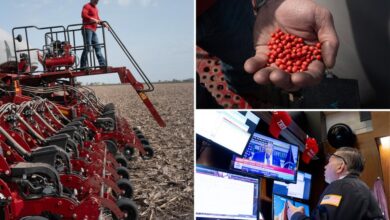World Economic Forum Investigating Allegations Against Founder Klaus Schwab

The World Economic Forum, the organization behind the annual gathering of world leaders in Davos, Switzerland, is currently investigating allegations of misconduct by its founder, Klaus Schwab.
The board of the World Economic Forum launched an inquiry into Mr. Schwab in April following the receipt of a letter, reportedly from current and former staff members, alleging improper use of funds and making women uncomfortable with certain comments. Two sources familiar with the situation disclosed this information on the condition of anonymity as the contents of the letter are confidential.
Mr. Schwab, 87, resigned as board chair last month and has not yet provided a comment. He refuted all allegations in an interview with The Wall Street Journal, which first reported the whistleblower letter and subsequent investigation, claiming that the board’s decision to investigate was an overreaction.
Yann Zopf, the forum’s media head, stated in a Wednesday release, “Following a whistleblower letter involving former Chairman Klaus Schwab, the board of trustees has decided unanimously to launch an independent internal investigation. After consulting with external legal counsel, the board determined that a comprehensive and impartial investigation was warranted.”
Mr. Schwab, a German economist, established the World Economic Forum in 1971 with the aim of advocating for the role of companies in advancing social causes. The organization is widely recognized for its annual conference in January, where numerous business leaders and policymakers gather in Davos to make commitments on various issues such as diversity and climate change.
Commonly known as Davos due to its location, the conference has faced criticism in recent times regarding the effectiveness of its ambitious goals and pledges in bringing about substantial change. Many of the commitments made at Davos, such as those related to globalism, diversity, and inclusion, were toned down this year following the election of President Trump.
Nevertheless, Davos remains a significant event for executives who view it as a platform to shape the agenda for the year ahead. The influential board of the World Economic Forum includes prominent figures like Laurence D. Fink of BlackRock, Marc Benioff of Salesforce, cellist Yo-Yo Ma, and Christine Lagarde, the president of the European Central Bank.
The impact of the turmoil at the World Economic Forum on the conference and its sponsors, including Amazon, Bank of America, and Chevron, remains uncertain. In April, the board announced the appointment of Peter Brabeck-Letmathe, former CEO of Nestlé, as interim chair while they search for a permanent successor to Mr. Schwab.





